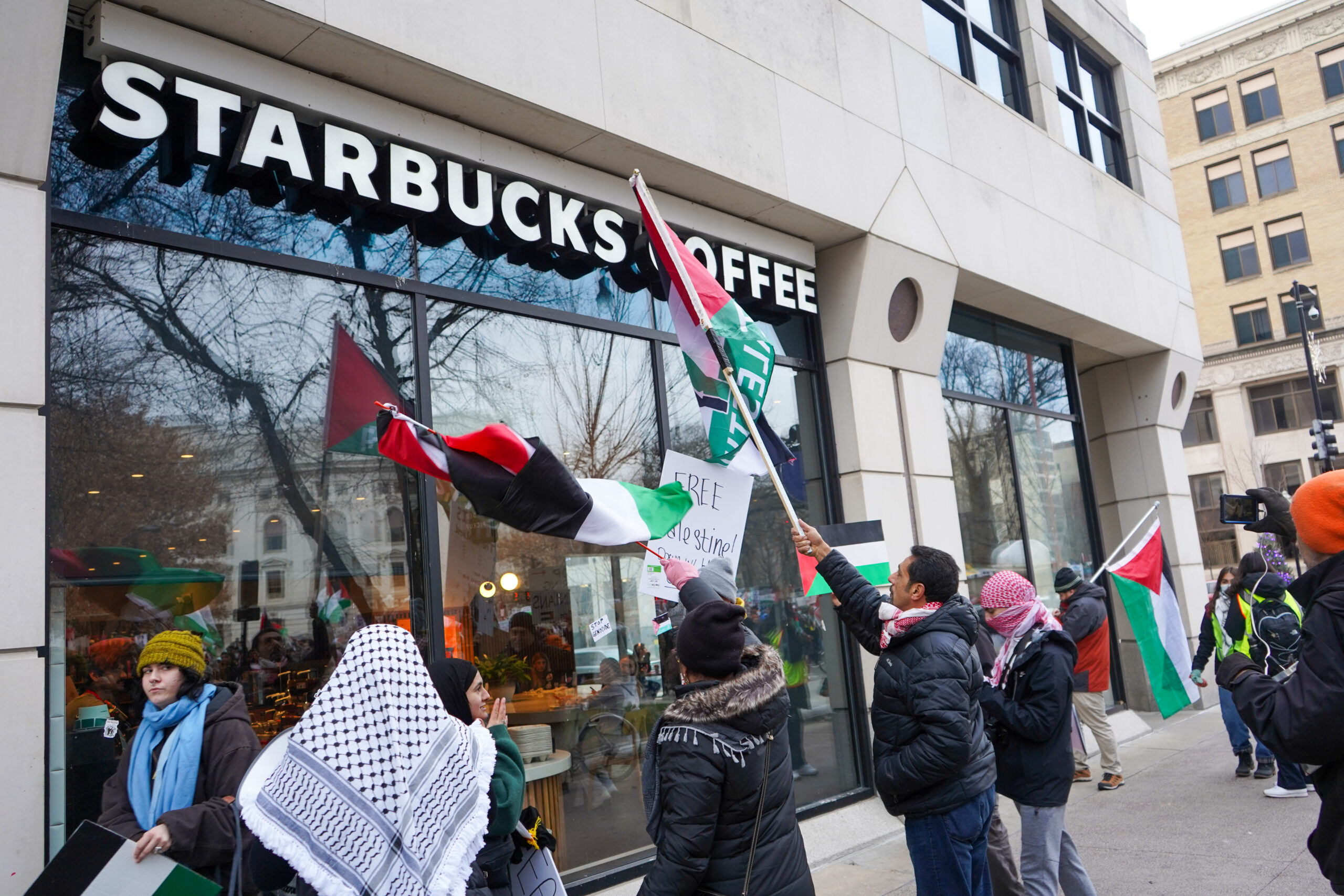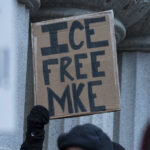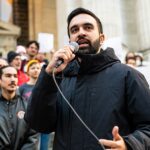Photo by Kamal Moon
BDS supporters fly Palestinian flags outside a Starbucks during a march in Madison, Wisconsin after the company sued its workers’ union for publicly supporting Palestine.
It is no secret that the BDS Movement is constantly under attack by US legislation. Thirty eight states have adopted anti-BDS laws that prohibit or restrict entities from engaging in cultural, economic or academic boycotts and divestments from Israel. Wisconsin is one such state.
In October 2017, Governor Scott Walker signed Assembly Bill 553 into law, preventing state contracts receiving $100,000 or more from endorsing BDS.
Bill AB553 received bipartisan support when it got passed.
How is it constitutional, though, for states to outlaw boycotts and divestments of Israel with respect to protections under the First Amendment? Is it not each and everyone US citizen’s right to patronize and invest in whatever they please?
The Boycotts, Divestments and Sanctions (BDS) movement, started in 2005 by Palestinian activists, works to put economic pressure on Israel in order for the state to comply with international law and end their systemic oppression of Palestinians.
Although the 2018 Israel Anti-Boycott Act (which would have made it federal law for contractors to sign a pledge not to boycott Israel, as well as make BDS a federal crime) died in Congress, laws of similar nature have been passed at state levels.
There is plenty to unpack with regards to Israel being an illegitimate settler-colonial tool of Western imperialism, but that is for another day. Focusing on the implications of outlawing BDS, it is undeniably a slippery slope when governing bodies begin to police an individual or group’s informed decision to refuse doing business with Israeli interests.
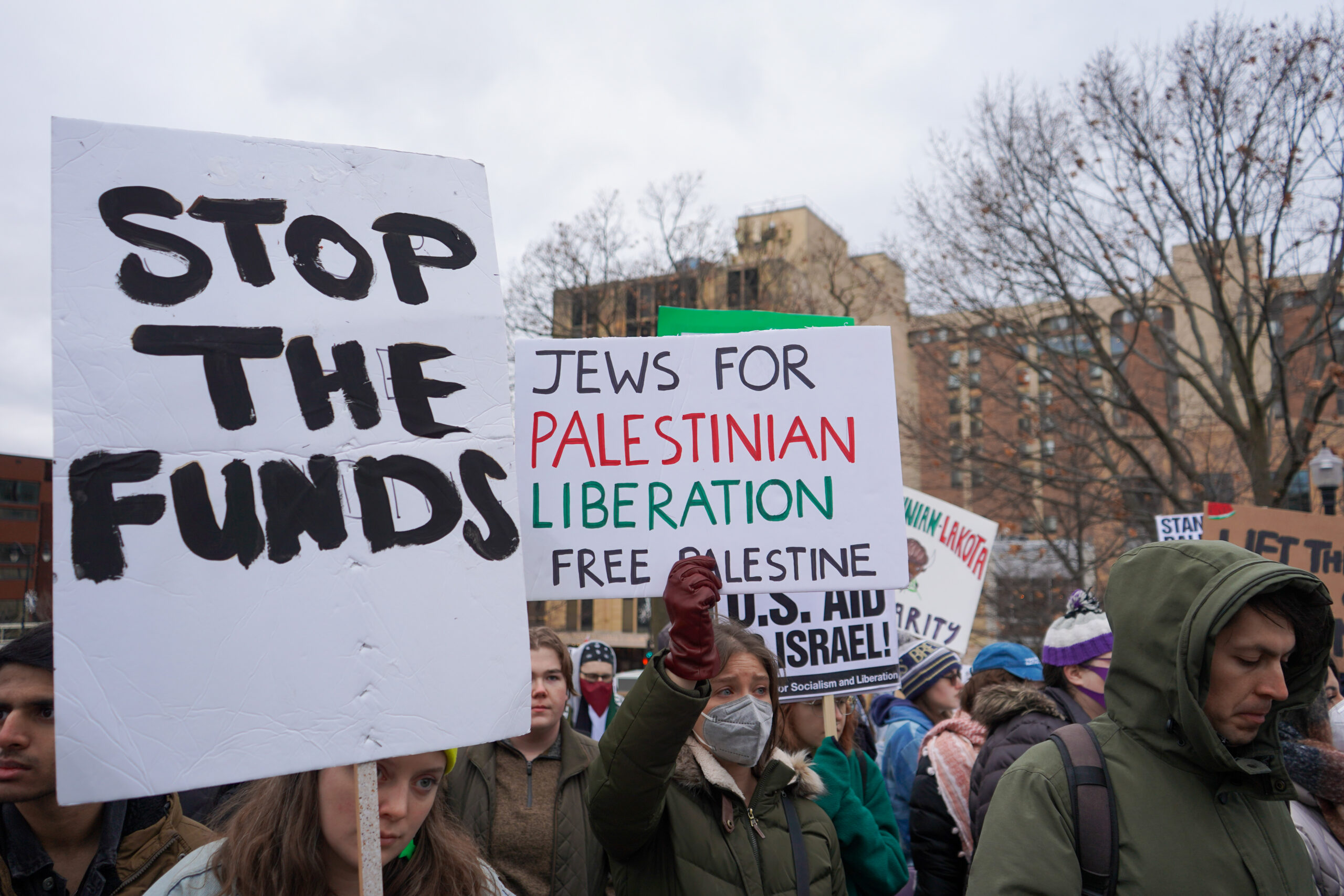
Photo by Kamal Moon
In April 2019, the American Civil Liberties Union (ACLU) in Texas successfully argued against an anti-BDS law on behalf of four individuals who had been forced to choose between a job contract and supporting a boycott of Israel. The ACLU took on similar cases in Arizona and Kansas, advocating for the right to boycott as fundamental to the First Amendment.
When journalist-activist Abby Martin got banned from speaking at a Georgia conference in 2020 for refusing to sign a pledge not to boycott Israel in accordance with the state’s anti-BDS laws, she filed a free speech lawsuit and won.
However, in October 2022 the Arkansas Supreme Court denied a petition by the ACLU to review its decision upholding the constitutionality of Arkansas Times LP v. Mark Waldrip, which ruled that First Amendment protections do not apply to commercial boycotts against foreign governments.
What is the caveat when the 1982 US Supreme Court case NAACP v. Claiborne Hardware Co ruled that although states can regulate economic activities, they do not have the power to penalize those engaged in a peaceful political boycott? Why does one get punished for not doing business with a foreign government whose policies they do not agree with?
Opponents of BDS commonly peddle the argument that the campaign is antisemitic, accusing activists of “singling out” and delegitimizing Israel as the (self-proclaimed) Jewish state.
“Many agree with the tactic of BDS but are afraid to weigh in on it because of the repercussions,” Wisconsin State Representative Ryan Clancy contends. “Zionists try to conflate being a Jew with Zionism, and nobody wants the charge of antisemitism levied towards them.”
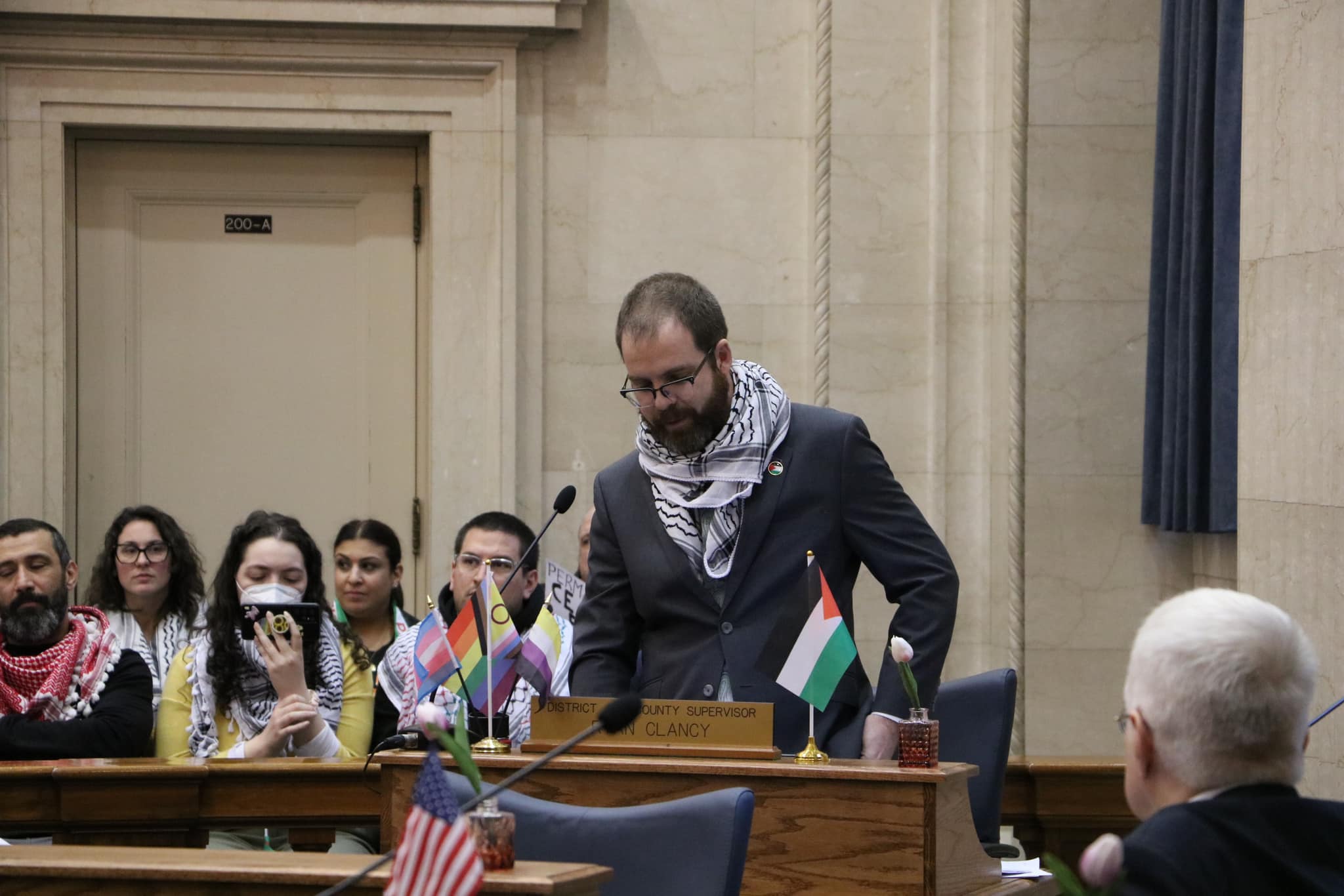
Rep. Ryan Clancy (D-Mil) who proposed the original ceasefire resolution to the County Board, cites the unprecedented and oppressive nature of anti-BDS legislation.
But the Jewish population is not a monolith. National anti-Zionist advocacy group Jewish Voice for Peace (JVP) supports Palestinians in their struggle against Israeli apartheid and rejects Israel’s co-opting of Jewish identity as a means to commit atrocities against the Palestinian people. Both JVP Milwaukee and JVP Madison are active members of the Wisconsin Coalition For Justice In Palestine.
“Zionists think that they have a monopoly on the Jewish community,” Clancy said. “It’s really strange and destructive.”
Clancy refers to state anti-BDS laws as “a carve-out for one government,” asserting that Israel is held to a much lower standard by the US than other countries for human rights violations and war crimes. “It’s unprecedented; we don’t do that for anything else,” he notes. “We saw students in the 80’s calling to divest from apartheid South Africa, and it would have been unconscionable to bring forward legislation saying we have to protect South Africa in the same way folks are doing for Israel.”
Pointing to the lengths to which the state of Israel will go to silence criticism of its policies towards Palestinians, Clancy continues, “Their government bans people from entering Israel who are visibly in support of BDS. The oppressive nature around BDS is that you can’t even talk about it as an elected official, and it’s incredibly stifling to folks’ speech when you get hit with all these bizarre, unfounded charges for supporting it.”
Milwaukee activist Sawsan Rizeq joined local BDS efforts after October 7th. “As a Palestinian, my activism started the day I was born,” she says.
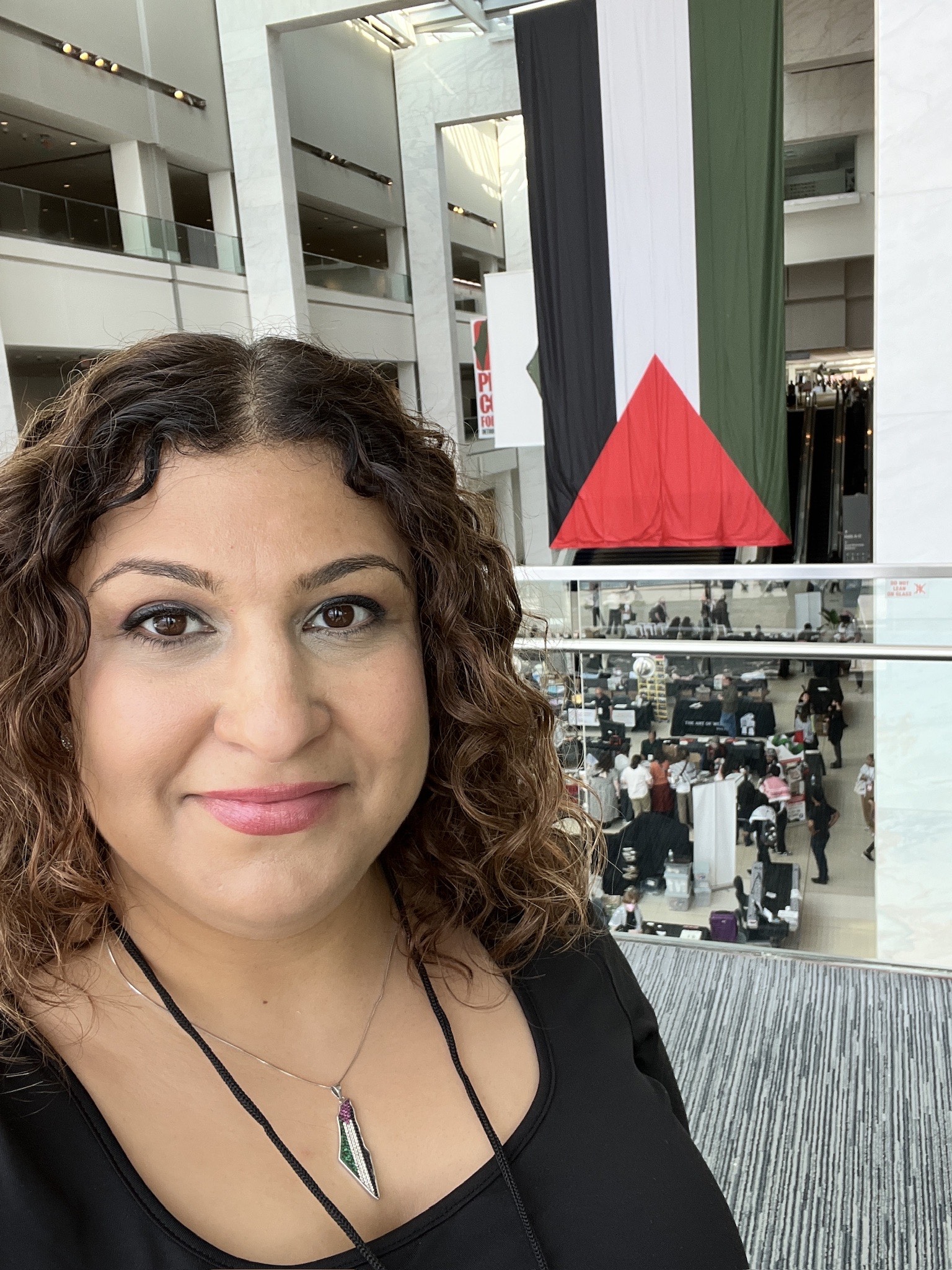
Activist Sawsan Rizeq
Rizeq had been unaware that anti-BDS laws were in place in Wisconsin until a few months ago. “As an American, you should be furious about this,” she asserts. “It feels like a form of treason that my government allows me to boycott something like a company that makes jackets out of fox fur, but I can’t boycott a company that is complicit in killing innocent families.”
Law is not synonymous with ethics. Laws can be and certainly have been unethical. Boycotts are a citizen’s rightful means to protest and create change to laws that they believe are unethical.
After Rosa Parks was arrested in Montgomery, Alabama in 1955 for refusing to give up her bus seat to a white passenger, the subsequent Montgomery Bus boycotts resulted in the Browder v. Gayle decision that ruled racial segregation on city buses unconstitutional. Global economic, academic and cultural boycotts of South Africa helped dismantle the racist system of apartheid in the 1990s.
The BDS movement itself has facilitated successful campaigns against Puma, G4S, and Pillsbury for them to each end business relationships with Israel.
By outlawing public endorsement of BDS, state laws attempt to silence pro-Palestinian voices from a universally-adopted method of peaceful, non-violent protest. It is racist, systemic oppression. However, Rizeq makes a great point, “If you don’t want to listen to my literal voice, you can listen to where my money goes.”
If anything, states passing anti-BDS laws show that they are afraid BDS will work, therefore compromising and delegitimizing US imperialist interests in the Middle East.
Representative Clancy is up for reelection this year and is preparing legislation to get AB553 repealed. “It’s a really simple piece of legislation that strikes at the 2017 language,” he describes. “This carve-out for Israel is chilling in terms of free speech and inconsistent with the rest of our laws.”
At the Milwaukee County Board of Supervisors’ meeting in March where Milwaukee County calling for an immediate ceasefire in Gaza, pro-Palestine activists and community members showed out in massive numbers, filling both the meeting room and its overflow room. Whenever legislation receives a hearing to repeal AB553, it will once again need the Milwaukee community’s full support.
Additionally, there are several ongoing BDS campaigns in Wisconsin led by local activists. One targets the The Water Council, a Milwaukee nonprofit in business with Israeli water company Mekorot. Another is focused on Astronautics Corporation of America, which supplies avionics equipment to Israel.
“Palestinian liberation is not a sprint; it’s a marathon,” Sawsan Rizeq concludes. “I’ve definitely learned that through organizing.”
